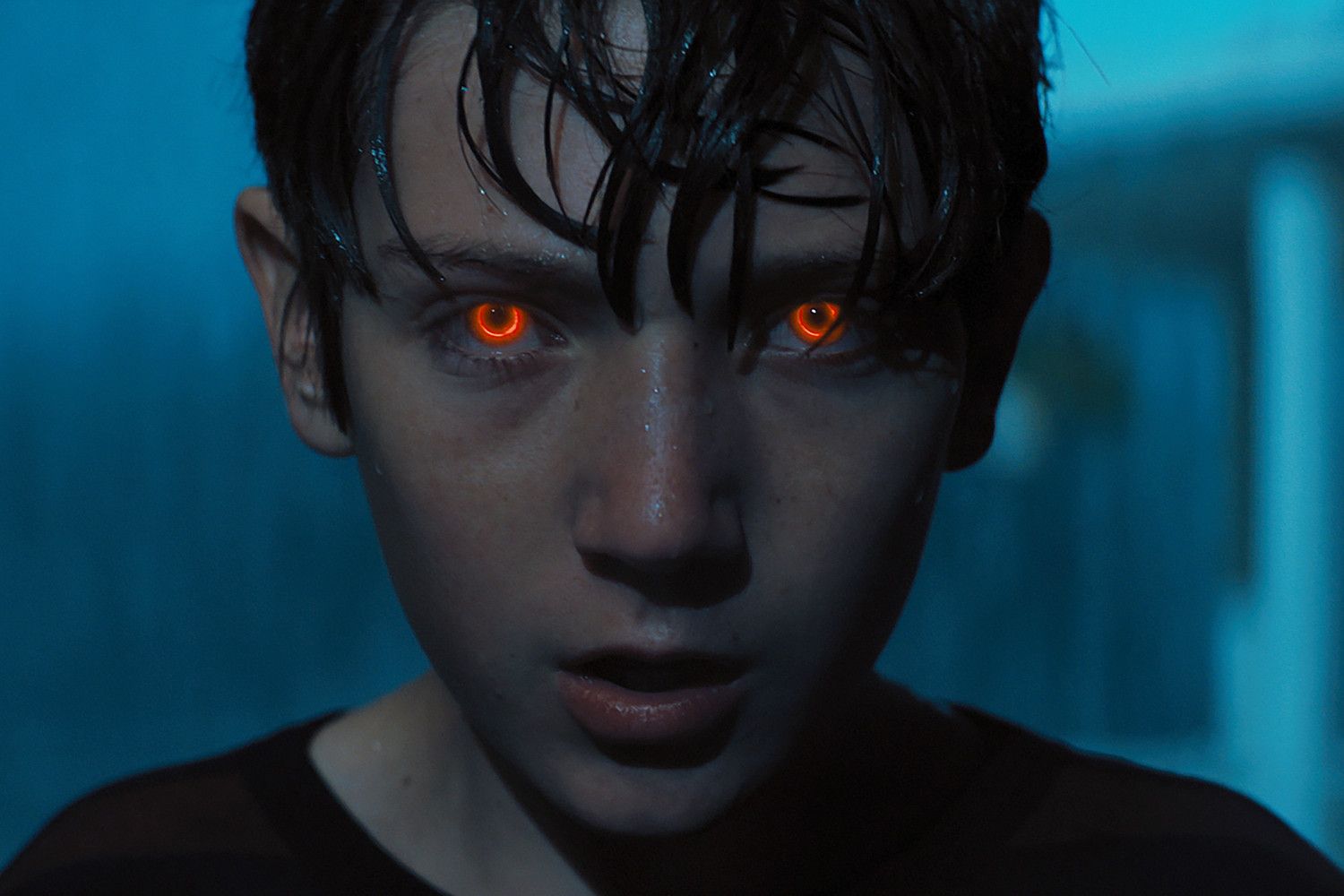Brightburn is a high-concept horror movie that gathers its dread not only from spinning a classic story in an opposite direction, but from pricking at a parental and societal fear with something approaching real psychological acuity. It starts with a childless Kansas couple whose farmhouse is rattled by a falling meteor that turns out to house a baby. This special boy fell from the heavens and they decide to raise him as their own. As he is entering puberty, he slowly discovers strange powers: strength, speed, flight, invulnerability, laser-eyes. We’ve been here before, but there is no heroism on the horizon. Like many 12-year-old boys, he reacts to his changing body as a source of confusion and shame. And yet, with no Superman pull towards virtuous self-discovering and inevitable do-good mentality here, he instead retreats into himself, his entitlement, his budding interest in pulling apart animals and lurking after pretty classmates. He grows secretive, hiding these urges, lashing out inappropriately. His adoptive parents (Elizabeth Banks and David Denman) are at a loss. What happened to their sweet little boy? He’s surly, distant, lying. It’s putting a strain on their relationship. The movie does well by treating this seriously with emotionally perceptive scenes of drama well played. It prickles with suspense drawn out of the simple parental concern that one’s offspring might grow — or twist or disappear — beyond understanding, beyond help, beyond control. It put me in mind to wonder what mothers and fathers must feel when they find, much to their surprise, that their babies have grown up to be those who send death threats to critics who don’t like comic books or video games, who harass women, who become white supremacists or male chauvinists, who become mass shooters and serial killers. Where does the love go when the apple falls so far from the tree? How can one help a child who falls so far into such extremes? It may be set in pulp, a superhero slasher riffing on expectations. But it as an all-too-real insight at its core. Here, as we watch this boy — a terrifically chilling performance from Jackson A. Dunn who brings hauntingly cold eyes, a flat affect, and a vacant chilled stare — cross the line from puberty to sociopathy, to murderous intent, it’s unsettling predictable to watch him grow into his full violent potential. As director David Yarovesky capably stages Brian and Mark Gunn’s screenplay’s increasingly gross and bloody slasher film set pieces, a small but splattered body count steadily accrues in typical horror movie rhythms. Long silences, copious empty space, stings of orchestration, sudden movements, spurts of blood and viscera. It all grows out of its steadily upsetting premise. The movie only steps wrong in its end credits, which escalate a step too far for a credit cookie and give you time to contemplate how two key supporting characters have been misplaced in a rush to the end. But nonetheless, the film otherwise latches so firmly to its good idea, and keeps a tight focus on a parental relationship. It has a tight grip. The horror is not merely in the murders or the dark charge of a Smallville torn apart by growing superpowers gone wrong. It’s in the sense that this is a result of an American way that’s lost its way (an emptying modern small town far from the Norman Rockwell vision of Americana) and a look into the eyes of a well-intentioned mother — Banks trembling with steely resolve and unfathomable distressing betrayal — who sees her son slip into a heart of darkness.


No comments:
Post a Comment